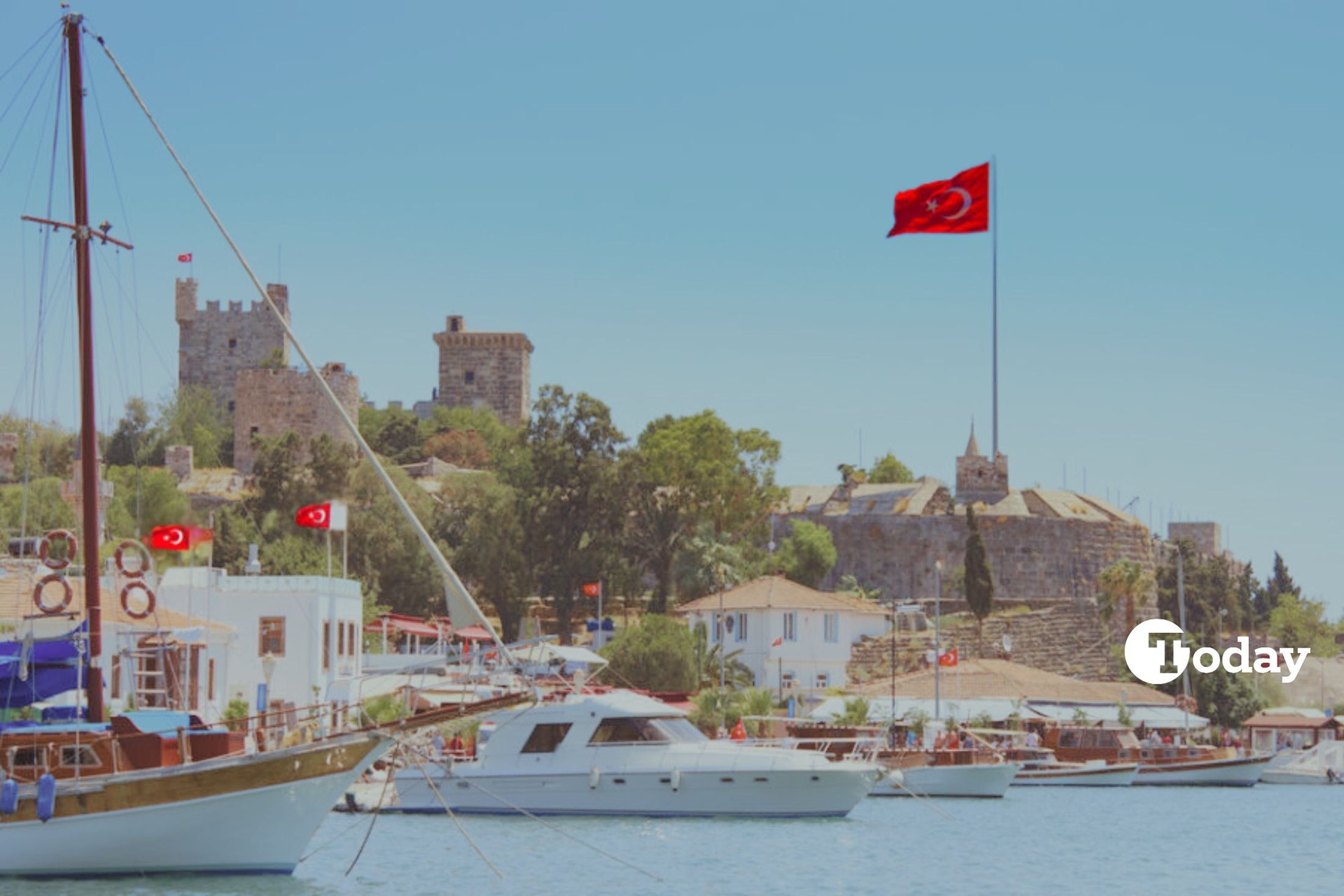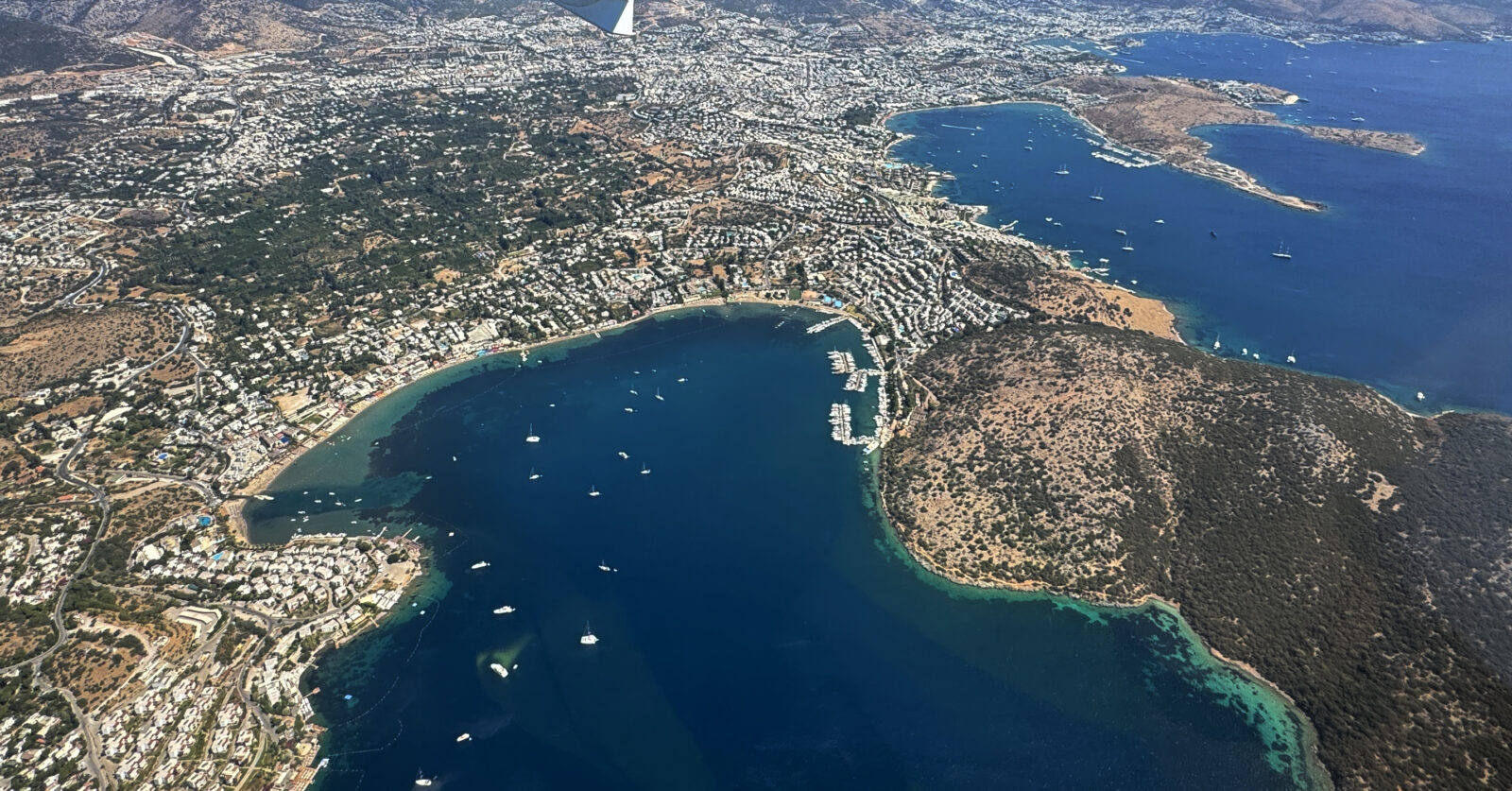
The European Union Intellectual Property Office (EUIPO) revoked Türkiye's trademark registration for the slogan "Turkaegean" after Greece filed a formal objection. The ruling has sparked political and cultural debates, highlighting territorial, economic, and cultural disputes in the Aegean region, as well as concerns over political decisions on legal matters.
Türkiye launched the "Turkaegean: Coast of Happiness" campaign in late 2021 as part of a global tourism initiative, showcasing the Aegean coastline's natural beauty, cultural heritage, and historical significance on its side of the coast. EUIPO initially approved the campaign without objections, allowing Türkiye to promote the slogan across EU member states.
From the start, the slogan faced backlash in Athens. Greek officials argued that the term "Turkaegean" carried geopolitical implications, implying an exclusive claim over a region that has been a point of contention between the two countries for decades.
EUIPO sided with Greece, ruling that widely recognized geographical terms like "Aegean" cannot be monopolized as trademarks, especially when associated with specific commercial services. In its 19-page decision, the agency stressed that such trademarks must not hinder fair competition, a misstep that was overlooked in the years prior to the appeal.
Türkiye defended the slogan, stating it only highlighted its portion of the Aegean coastline, a region with significant historical and cultural ties to the country. Turkish officials also pointed to Greece’s existing trademarks using the term “Aegean” as evidence of double standards. However, EUIPO dismissed these arguments, finding no violation of Greece’s trademarks and siding with its broader claims regarding geographic exclusivity.

The ruling has been widely celebrated in Greece as a diplomatic and legal victory. Development Minister Takis Theodorikakos called the decision a win for protecting Greece’s cultural and historical identity. Health Minister Adonis Georgiadis went further, claiming that the cancellation undermines Türkiye’s maritime ambitions, often linked to its controversial “Blue Homeland” doctrine—a strategy primarily focused on territorial claims in the Mediterranean rather than the Aegean.
Greek media amplified the sentiment, framing the decision as the "first diplomatic victory of 2025" and emphasizing Türkiye’s failure to secure exclusive rights to a slogan tied to a disputed region. However, the Greek media's portrayal, shaped by similar issues with other neighboring countries, does not necessarily reflect public opinion.
Türkiye has two months to appeal the EUIPO decision and up to four months to submit detailed arguments if it chooses to contest the ruling. The case has also attracted attention from the United States, where the U.S. Patent and Trademark Office (USPTO) has requested clarifications on Türkiye’s use of the term. Turkish officials have 20 days to respond to the USPTO’s inquiries.
Should Türkiye proceed with an appeal, the process could take several years, further complicating its efforts to brand the Aegean region internationally.
https://www.youtube.com/watch?v=onBF8rLsbgs&ab_channel=GoT%C3%BCrkiye
The "Turkaegean" dispute highlights how even seemingly minor issues, like tourism slogans, can become over-geopoliticized in the context of Greece-Türkiye relations. While the two countries have longstanding disagreements over maritime boundaries, Cyprus, and overlapping territorial claims in the Aegean, the escalation of a branding dispute into a diplomatic victory underscores a tendency to inject geopolitical significance into otherwise trivial matters.
Both nations rely heavily on tourism, making regional branding a key economic tool. For Türkiye, the campaign was a straightforward attempt to promote its share of the Aegean coastline, while Greece viewed it as an encroachment on its sovereignty—an interpretation critics argue goes beyond reasonable concern.
Despite their disputes, both countries often benefit from their proximity, capitalizing on each other’s popularity among tourists.
This broader trend of over-geopoliticization raises concerns about the potential influence of political considerations on legal mechanisms, such as those of the European Union. While the EU's decision to revoke the "Turkaegean" trademark is framed as a legal judgment, it has been criticized as a politically charged ruling that undermines its commitment to neutrality.
Observers warn that such precedents could politicize EU regulatory bodies, casting doubt on their impartiality in disputes involving member states and non-member countries.
With appeals and further disputes looming, the controversy signals a continued struggle over narratives in the Aegean—a region where history, identity, and modern diplomacy remain deeply intertwined.